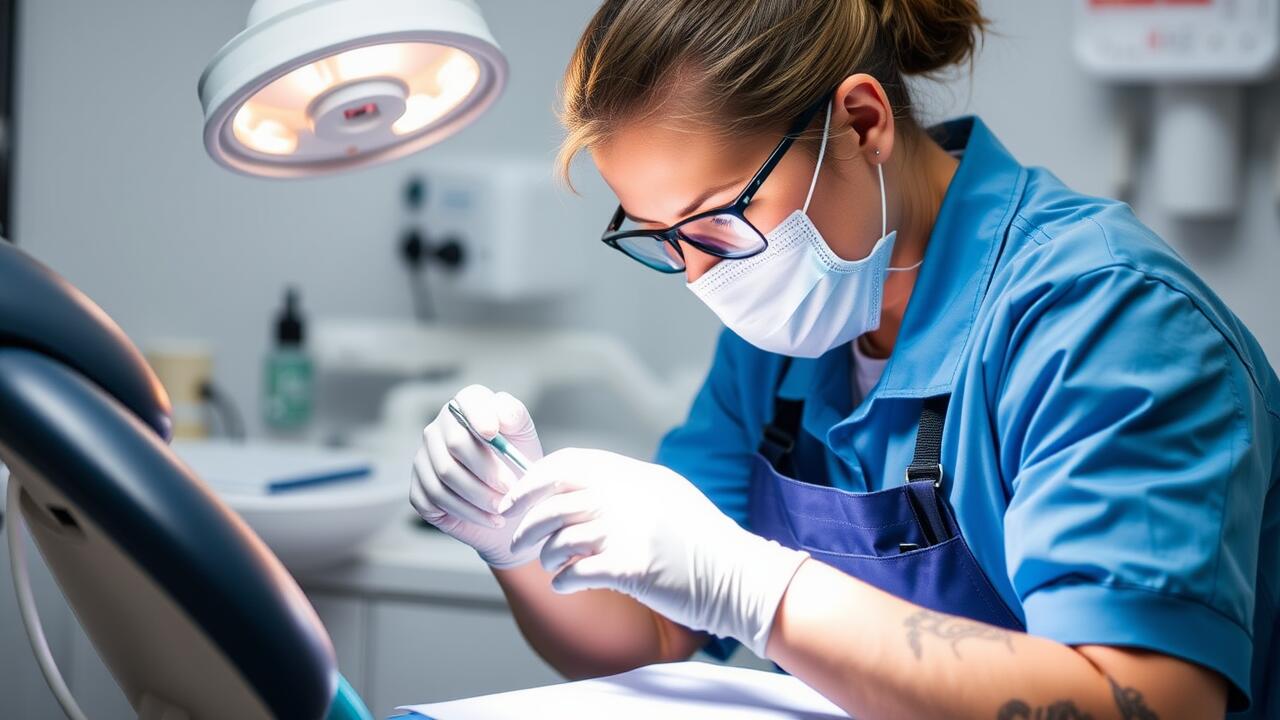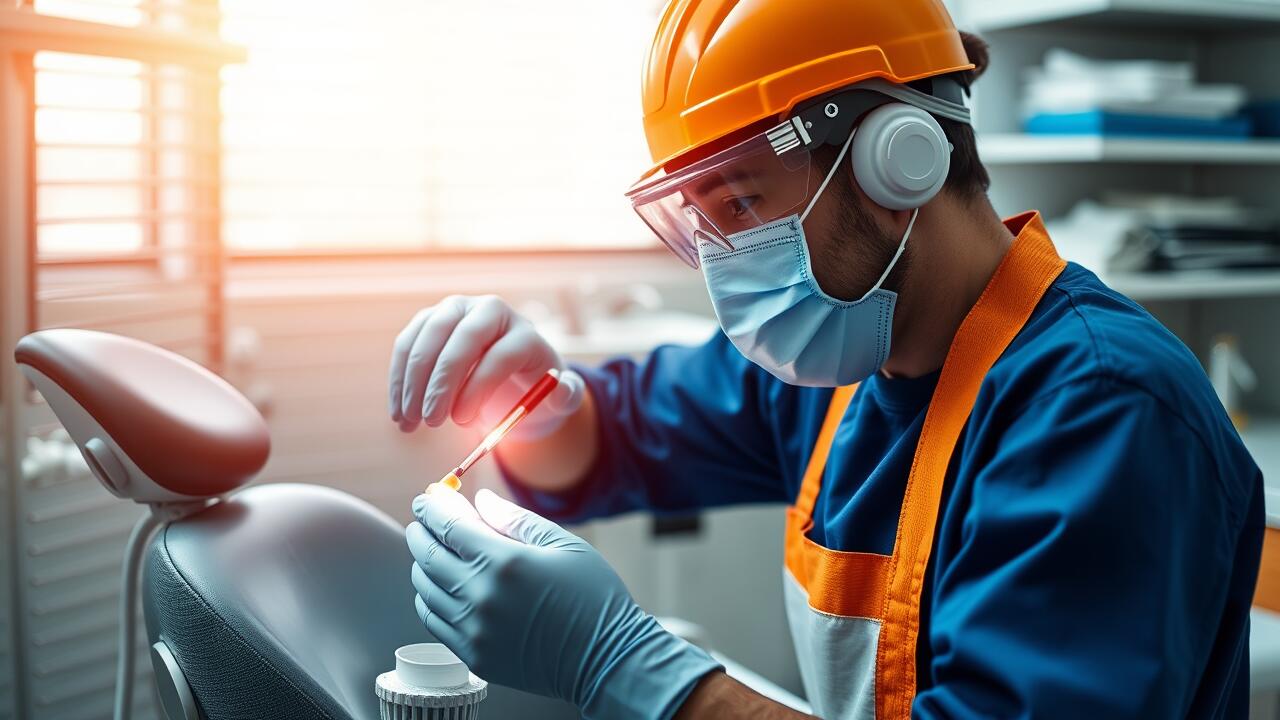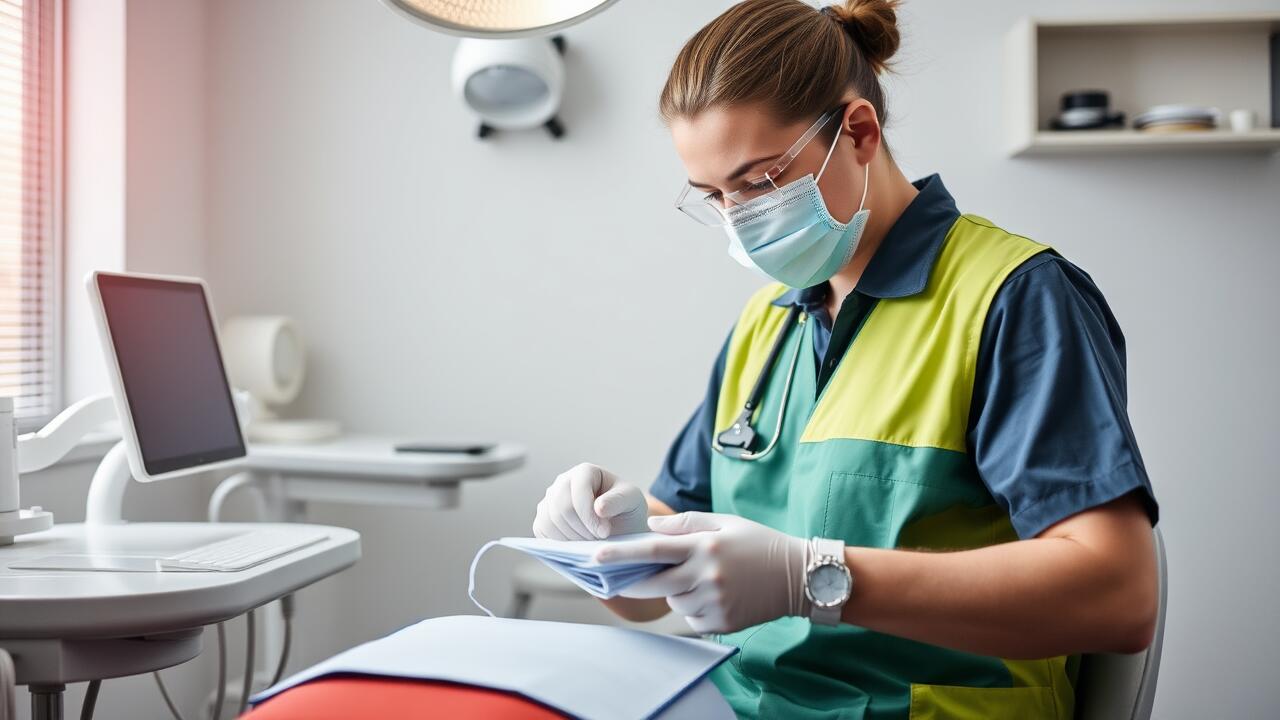
Common Concerns During Dental Exams
Many individuals express common concerns during dental exams, typically centring on potential pain, the cost of treatments, and the time commitment involved. Anxiety often arises from uncertainty regarding the procedures that will be undertaken. Patients may worry about discovering the need for unexpected treatments, leading to additional expenses and prolonged visits. Clear communication with dental professionals can alleviate many of these fears, allowing for a more comfortable experience.
Awareness of what to expect during dental exams can also help reduce apprehension. Most examinations involve a thorough assessment of oral health, including a visual inspection and sometimes X-rays. The process is generally quick and designed to identify any underlying issues before they escalate. By understanding the purpose of these evaluations, patients can feel more at ease and better appreciate their role in maintaining oral health.
Find out further details by clicking here.
Addressing Anxiety and Fear
Many individuals experience anxiety before attending dental exams. This feeling can stem from various sources, including previous negative experiences or fear of the unknown. It is important for patients to communicate their feelings with their dentist, as professionals are trained to help manage anxiety. Many offices offer calming environments with soothing music and comforting practices to help ease nervousness.
In addition, some dental practices provide sedation options for those with severe anxiety. Gentle techniques and clear explanations of procedures can also help demystify the process. Understanding what to expect during dental exams can significantly reduce apprehension. Patients should remember that dental professionals are there to help and support them, ensuring a more comfortable experience.
Differences Between Regular and Emergency Dental Exams
Regular dental exams are typically scheduled appointments that focus on preventive care. During these visits, dentists perform comprehensive check-ups, including examining the teeth and gums, cleaning plaque and tartar, and conducting X-rays if necessary. The aim is to identify any potential issues early and provide appropriate treatment to maintain oral health.
Emergency dental exams occur in response to urgent situations requiring immediate attention. These may involve severe tooth pain, swelling, or any traumatic injury to the mouth. Unlike routine visits, the focus is on alleviating pain, addressing injury, or managing infections. Such exams often do not follow the regular protocols of a comprehensive evaluation and instead prioritise rapid assessment and intervention.
When to Seek Immediate Care
Recognising when to seek immediate care during dental exams is crucial for maintaining oral health. Severe toothaches, swelling in the gums, or any visible signs of infection should prompt a quick visit to your dentist. Additionally, if a dental injury occurs due to an accident, it's essential to arrange an appointment as soon as possible to assess any potential damage and prevent further complications.
Emergency dental exams differ significantly from regular check-ups. While routine visits focus on preventative care, emergency cases require immediate attention to alleviate pain and address serious issues effectively. Understanding these distinctions can help patients make informed decisions about their dental health and ensure timely treatment when necessary.
Dental Exam for Children
Introducing children to the dentist early in life is essential for establishing a foundation for good oral health. Dental exams for children typically begin when the first tooth erupts, ensuring that any potential issues can be identified promptly. These routine check-ups not only focus on tooth development but also on proper dental hygiene and dietary habits. Educating children about the importance of dental care at a young age fosters a positive attitude toward oral health.
During dental exams for children, dentists will check for cavities, gum health, and any irregularities in the alignment of teeth. The aim is to spot developing problems before they become significant issues. Regular dental visits help to instil good habits, making children more comfortable with the dental environment. This proactive approach significantly reduces the likelihood of more serious dental concerns arising later in life.
Importance of Early Dental Visits
Early dental visits are crucial for establishing good oral health habits in children. Regular dental exams allow practitioners to monitor the development of the child's teeth and jaw, ensuring any issues are identified promptly. These visits can prevent more serious dental problems from developing later on. A positive experience during these initial appointments can also help alleviate any fear or anxiety about dental care, setting the tone for a lifetime of good oral hygiene.
Introducing children to dental exams at a young age promotes awareness of dental hygiene practices. Children learn about the importance of brushing, flossing, and regular check-ups. Additionally, these early interactions can foster a trusting relationship with the dentist, encouraging ongoing communication about their oral health. Parents play a vital role in this process by reinforcing the significance of dental care and regular visits to prevent future complications.
FAQS
How often should I have a dental exam?
It is generally recommended to have a dental exam every six to twelve months, depending on your individual oral health needs and your dentist's advice.
What should I expect during a dental exam?
During a dental exam, your dentist will typically check your teeth and gums for any signs of decay or disease, perform a thorough cleaning, and may take X-rays if necessary.
How can I manage anxiety during my dental exam?
If you experience anxiety about dental visits, consider discussing your concerns with your dentist beforehand. They may offer techniques such as deep breathing exercises, sedation options, or a calming environment to help ease your nerves.
What is the difference between a regular and an emergency dental exam?
A regular dental exam is a routine check-up focused on prevention and maintaining oral health, while an emergency dental exam is conducted when immediate treatment is needed due to pain, trauma, or other urgent issues.
At what age should my child have their first dental exam?
It is recommended that children have their first dental exam by the age of one or within six months of their first tooth appearing, whichever comes first. Early visits help establish good oral hygiene habits and monitor dental development.

